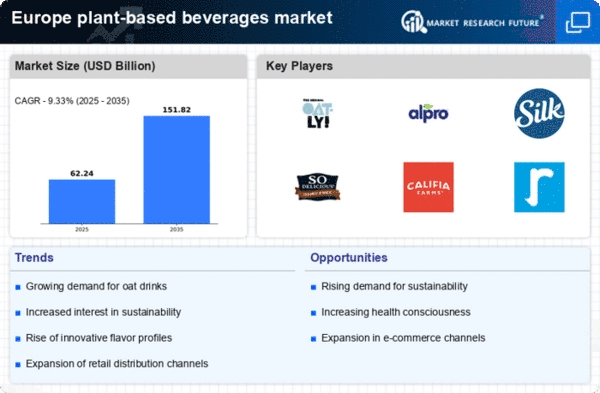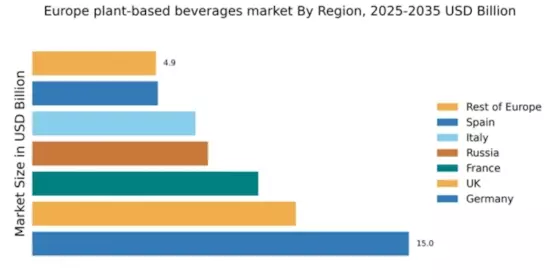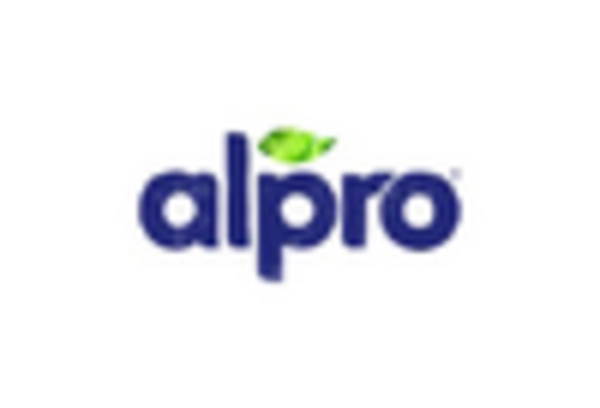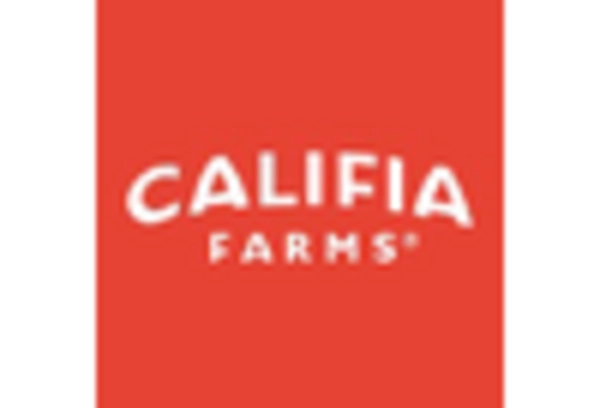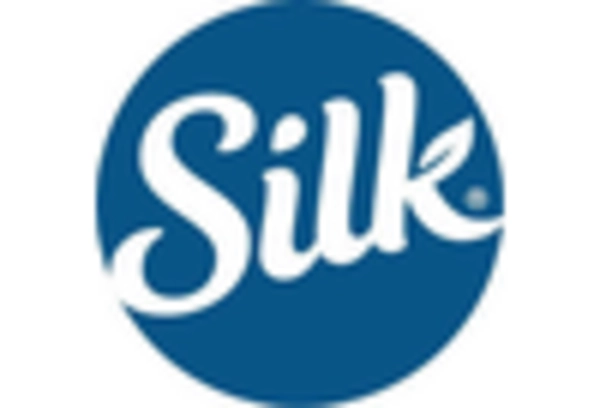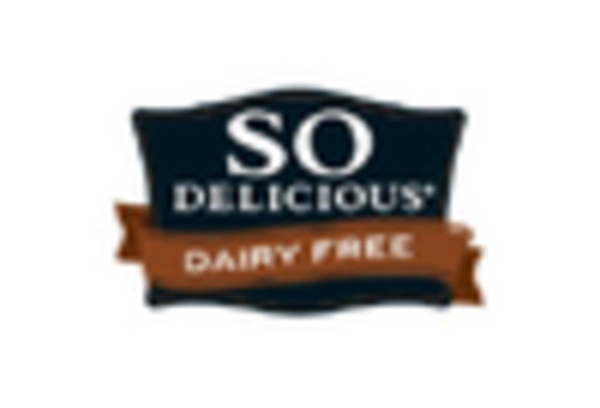Innovative Product Development
Innovation in product development is a significant driver for the plant based-beverages market. Companies are increasingly investing in research and development to create unique formulations that appeal to diverse consumer tastes. For instance, the introduction of fortified plant-based beverages, enriched with vitamins and minerals, has gained traction among health-conscious consumers. Market data reveals that the segment of fortified plant-based drinks has seen a growth rate of 15% annually in Europe. This innovation not only enhances the nutritional profile of beverages but also attracts a broader audience, including those who may not strictly adhere to plant-based diets. As a result, the industry is likely to witness a continuous influx of new products, further stimulating market growth.
Consumer Awareness and Education
Consumer awareness and education regarding the benefits of plant-based beverages are driving growth in the market. As information about the health and environmental advantages of plant-based diets becomes more accessible, consumers are increasingly seeking out these products. Educational campaigns and social media influence appear to play a significant role in shaping consumer perceptions. Data suggests that approximately 60% of European consumers are now aware of the nutritional benefits associated with plant-based beverages, which has led to a rise in demand. This heightened awareness is likely to encourage more brands to enter the market, further diversifying the offerings available to consumers and enhancing the overall growth of the plant based-beverages market.
Rising Veganism and Plant-Based Diets
The increasing adoption of veganism and plant-based diets in Europe appears to be a pivotal driver for the plant based-beverages market. As consumers become more aware of the health benefits associated with plant-based nutrition, the demand for beverages made from nuts, grains, and fruits is likely to surge. Recent data indicates that the number of vegans in Europe has grown by approximately 30% over the past five years, suggesting a shift in dietary preferences. This trend is further supported by a growing body of research linking plant-based diets to lower risks of chronic diseases. Consequently, the plant based-beverages market is experiencing a notable expansion, as brands innovate to cater to this evolving consumer base.
Environmental Regulations and Policies
The implementation of stringent environmental regulations and policies in Europe is influencing the plant based-beverages market. Governments are increasingly promoting sustainable practices, which encourages manufacturers to adopt eco-friendly production methods. For example, the European Union has set ambitious targets for reducing carbon emissions, which may lead to a shift towards plant-based ingredients in beverage production. This regulatory environment appears to create opportunities for growth, as consumers are more inclined to support brands that align with their values regarding sustainability. Consequently, the plant based-beverages market is likely to benefit from this trend, as companies that prioritize environmental responsibility may gain a competitive edge.
Increased Availability and Accessibility
The growing availability and accessibility of plant-based beverages in retail channels is a crucial driver for the market. Supermarkets, health food stores, and online platforms are increasingly stocking a diverse range of plant-based options, making it easier for consumers to make informed choices. Recent statistics indicate that the number of retail outlets offering plant-based beverages has increased by 25% in the last two years across Europe. This enhanced distribution network not only caters to the rising demand but also educates consumers about the benefits of plant-based options. As a result, the plant based-beverages market is likely to experience sustained growth, as more consumers are exposed to these products.


